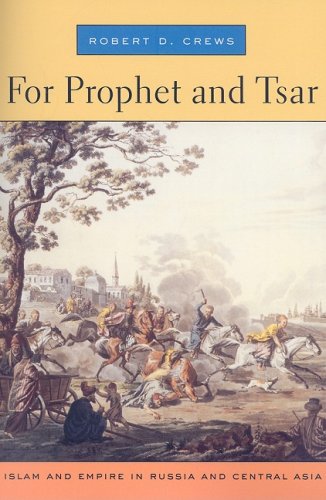

Most ebook files are in PDF format, so you can easily read them using various software such as Foxit Reader or directly on the Google Chrome browser.
Some ebook files are released by publishers in other formats such as .awz, .mobi, .epub, .fb2, etc. You may need to install specific software to read these formats on mobile/PC, such as Calibre.
Please read the tutorial at this link: https://ebookbell.com/faq
We offer FREE conversion to the popular formats you request; however, this may take some time. Therefore, right after payment, please email us, and we will try to provide the service as quickly as possible.
For some exceptional file formats or broken links (if any), please refrain from opening any disputes. Instead, email us first, and we will try to assist within a maximum of 6 hours.
EbookBell Team

4.0
96 reviewsRussia occupies a unique position in the Muslim world. Unlike any other non-Islamic state, it has ruled Muslim populations for over five hundred years. Though Russia today is plagued by its unrelenting war in Chechnya, Russia's approach toward Islam once yielded stability. In stark contrast to the popular "clash of civilizations" theory that sees Islam inevitably in conflict with the West, Robert D. Crews reveals the remarkable ways in which Russia constructed an empire with broad Muslim support.
In the eighteenth century, Catherine the Great inaugurated a policy of religious toleration that made Islam an essential pillar of Orthodox Russia. For ensuing generations, tsars and their police forces supported official Muslim authorities willing to submit to imperial directions in exchange for defense against brands of Islam they deemed heretical and destabilizing. As a result, Russian officials assumed the powerful but often awkward role of arbitrator in disputes between Muslims. And just as the state became a presence in the local mosque, Muslims became inextricably integrated into the empire and shaped tsarist will in Muslim communities stretching from the Volga River to Central Asia.
For Prophet and Tsar draws on police and court records, and Muslim petitions, denunciations, and clerical writings--not accessible prior to 1991--to unearth the fascinating relationship between an empire and its subjects. As America and Western Europe debate how best to secure the allegiances of their Muslim populations, Crews offers a unique and critical historical vantage point.
(20060713)